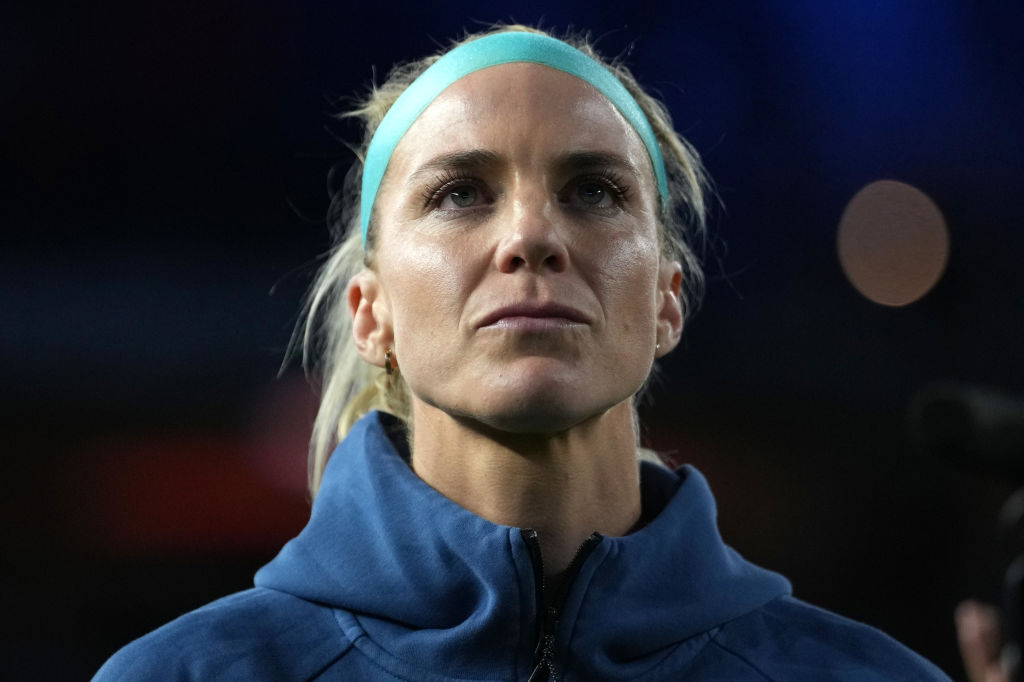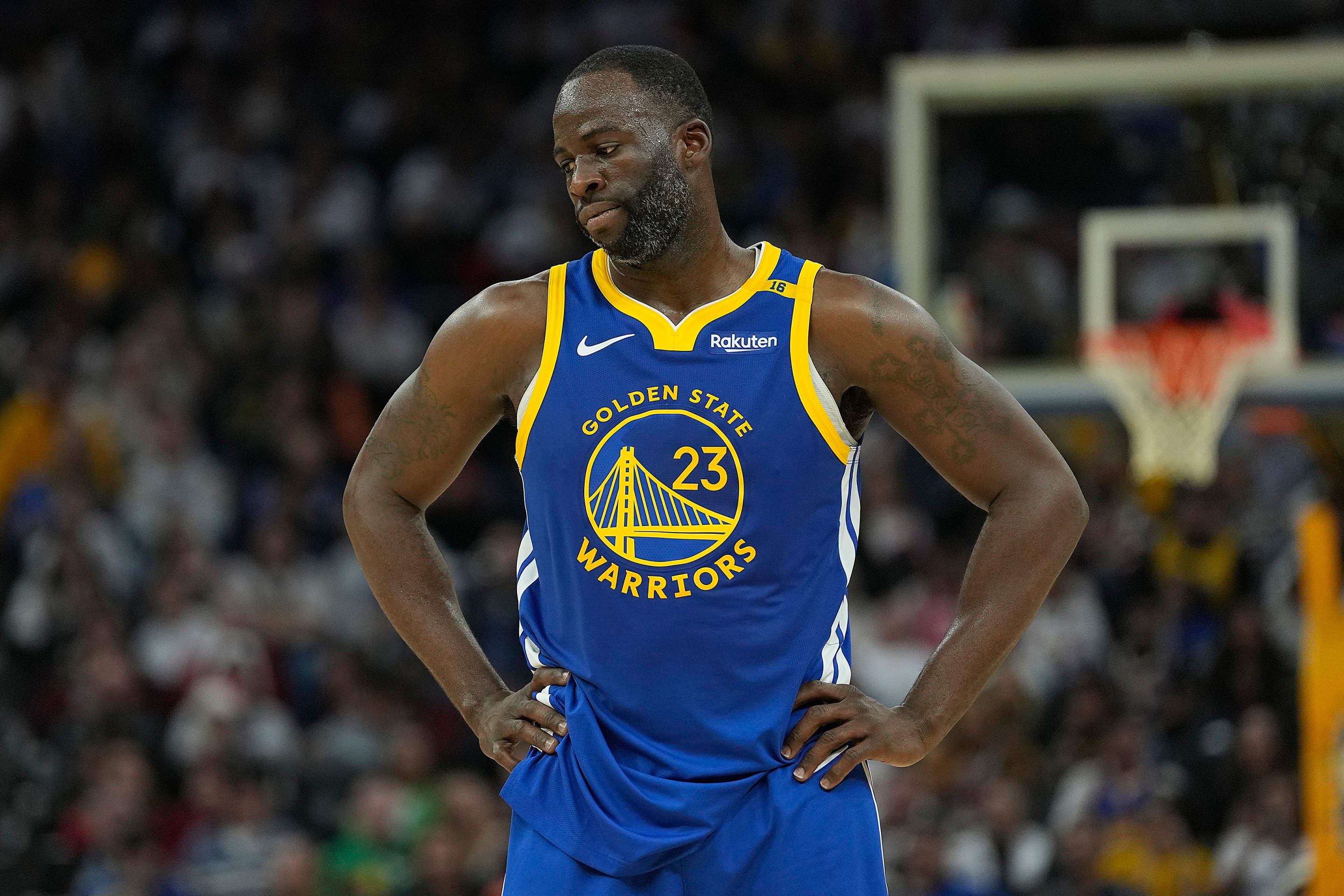On Thursday night, the USWNT played its first game since crashing out of this summer's World Cup. As far as palate-cleansers go, this one did the trick. The Americans enjoyed a breezy 3-0 win in a friendly with South Africa, and the inevitability of that result left everyone in the stadium with plenty of time to focus on the real purpose of the game: it was a last chance for 31-year-old captain Julie Ertz to say goodbye.
Ertz announced her retirement from both international and club soccer back in August, which immediately turned last night's game into a farewell ceremony. She started the game in the defensive midfield, and then was subbed off in the 35th minute to a raucous ovation. She hugged each one of her teammates, and the tears started flowing well before she reached the sideline.
After the game, Ertz gave a brief, tear-soaked speech to the crowd in Cincinnati. "To any young girl that's out there that dreams to be here, it's worth it," she said. "Every part of it."
It was fitting for Ertz's last appearance with the USWNT to be overflowing with such emotion, given how long she's been the emotional leader of the team. The joy, frustration, surprise, and agony that suffused so many USWNT games could always be seen most clearly on Ertz's face as she marshaled the team from her place in the heart of its defense. Like so many great athletes, Ertz specialized in riding those waves of emotion rather than letting them crest over her. For the past 10 years, few players on the USWNT roster were as reliable and steadying as Ertz.
Ertz may in fact be the defining player of the USWNT's recent era of dominance. She made her debut with the team in 2013, just as it was setting off on its quest to avenge its loss in the 2011 World Cup final. She made 122 appearances for the team, which amassed a 100-17-5 record in those games. In the 106 games she started, the USWNT went 87-16-3. Ertz was the embodiment of so much of what set the USWNT apart from its competition over the last decade. Within her you could find all the ferocity, physical power, and strength of will that defined American women's soccer for so long and carried the USWNT to back-to-back World Cup victories in 2015 and 2019. If you were to pick any random USWNT game from Ertz's tenure and try to identify what made the Americans so much better than the team they were busy playing off the field, it would be hard not to notice Ertz, positioned either in the defensive midfield or in the center of the back line, running over and through every opponent that came near her before banging in one of her signature front-post headers.
We know now, in the aftermath of the 2023 World Cup, that such advantages are no longer enough to keep the USWNT out of reach of the rest of the world's teams. This makes the timing of Ertz's retirement all the more fitting: she arrived on the scene right on time to help establish the USWNT as the most physically dominant soccer team in the world, and she is stepping aside right as the program confronts its need to take the next evolutionary step. If the USWNT's past belonged to the brawn of players like Ertz, then its future will belong to the craft of players like Naomi Girma, who will anchor the USWNT's defense going forward not as a crusher, but as a smooth, ball-playing center back.
Nobody could have asked for more from Ertz's career, both in terms of success and narrative cohesion. Her career tells the story of a decade's worth of dominant, brilliant soccer, and she now departs that story just as it's ready to continue without her.





